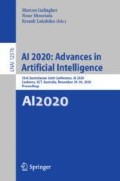Abstract
With the rapid growth in research on and development of autonomous machines, machine ethics, which used to be “just a theory”, has gained greater practical importance. In this paper, we present a logical approach to machine ethics. Our objective is to enable autonomous machines to behave in morally appropriate ways following well-defined ethical principles, exercising sound ethical judgement. Since moral reasoning involves selecting appropriate behavioural actions with varying preconditions, we propose a non-monotonic reasoning model and encode the model through two types of well-known ethical frameworks: the consequentialist approach to ethics and the deontological approach to ethics. The computational model is developed using Answer Set Programming in a situation calculus framework. We apply our model to a few paradigmatic scenarios that can be encountered in autonomous driving and interactions with social robots. Our study shows that the proposed model is applicable to a wide range of scenarios and leads to appropriately different reasoning outputs in different ethical frameworks.
Access this chapter
Tax calculation will be finalised at checkout
Purchases are for personal use only
Notes
- 1.
In this paper we will use the adjectives moral and ethical interchangeably, although some distinction is occasionally made in the literature and common parlance.
- 2.
Derived from the Greek root deon meaning duty.
- 3.
Consequentialism is rather misleadingly attributed to Aristotle in this work. The combination of perfectionism (a non-welfarist theory of value) with elements of utilitarianism may lead to what is called perfectionist consequentialism or, “in deference to its Aristotelian roots, eudaemonistic consequentialism” [24]. Nonetheless, contextual reading of the example given in [11] of lie as a (negative) value may be taken to be close to eudaemonistic consequentialism in spirit.
References
Alexander, L., Moore, M.: Deontological ethics. In: Zalta, E.N. (ed.) The Stanford Encyclopedia of Philosophy (2016)
Alkoby, S., Rath, A., Stone, P.: Teaching social behavior through human reinforcement for ad hoc teamwork - the STAR framework. In: AAMAS, pp. 1773–1775 (2019)
Anderson, M., Anderson, S., Berenz, V.: A value-driven eldercare robot: virtual and physical instantiations of a case-supported principle-based behaviour paradigm. Proc. IEEE 107(3), 526–540 (2019)
Awad, E., et al.: The moral machine experiment. Nature 563, 59–64 (2018)
Berreby, F., Bourgne, G., Ganascia, J.: A declarative modular framework for representing and applying ethical principles. In: AAMAS, pp. 96–104 (2017)
Bostrom, N., Yudkowsky, E.: The ethics of artificial intelligence. Cambridge Handbook of Artificial Intelligence pp. 316–334 (2014)
Bremner, P., Dennis, L., Fisher, M., Winfield, A.: On proactive, transparent, and verifiable ethical reasoning for robots. Proceedings IEEE 107(3), 541–561 (2019)
Cervantes, J., López, S., Rodríguez, L., Cervantes, S., Cervantes, F., Ramos, F.: Artificial moral agents: a survey of the current status. Sci. Eng. Ethics 26, 501–532 (2020)
Conitzer, V., Sinnott-Armstrong, W., Borg, J., Deng, Y., Kramer, M.: Moral decision making frameworks for artificial intelligence. In: AAAI, pp. 4831–4835 (2017)
Dennis, L., Fisher, M., Slavkovik, M., Webster, M.: Formal verification of ethical choices in autonomous systems. Robot. Auton. Syst. 77, 1–14 (2016)
Ganascia, J.: Ethical system formalization using non-monotonic logics. In: The Cognitive Science Conference, pp. 1013–1018 (2007)
Gebser, M., et al.: Potassco user guide 2.0. Technical report, University of Potsdam (2015)
Govindarajulu, N., Bringsjord, S.: On automating the doctrine of double effect. In: IJCAI, pp. 4722–4730 (2017)
Honarvar, A., Ghasem-Aghaee, N.: An artificial neural network approach for creating an ethical artificial agent. In: IEEE ISCIRA, pp. 290–295 (2009)
Levesque, H., Pirri, F., Reiter, R.: Foundations for the situation calculus (1998)
Li, H., Milani, S., Krishnamoorthy, V., Lewis, M., Sycara, K.: Perceptions of domestic robots’ normative behavior across cultures. In: AAAI/ACM Conference on AI, Ethics, and Society, pp. 345–351 (2019)
Lin, F., Reiter, R.: State constraints revisited. J. Logic Comput. 4(5), 655–677 (1994)
Lindner, F., Bentzen, M.M.: A formalization of Kant’s second formulation of the categorical imperative. arXiv preprint arXiv:1801.03160 (2018)
Mermet, B., Simon, G.: Formal verification of ethical properties in multiagent systems. In: Workshop on Ethics in the Design of Intelligent Agents, pp. 26–31 (2016)
Powers, T.: Prospects for a Kantian machine. IEEE Intell. Syst. 21(4), 46–51 (2006)
Reiter, R.: The frame problem in the situation calculus: a simple solution (sometimes) and a completeness result for goal regression. In: Artificial and Mathematical Theory of Computation, pp. 359–380 (1991)
Scheutz, M.: The case for explicit ethical agents. AI Mag. 38(4), 57–64 (2017)
Schneewind, J.B.: Moral philosophy from Montaigne to Kant. CUP (2003)
Sinnott-Armstrong, W.: Consequentialism. In: Zalta, E.N. (ed.) The Stanford Encyclopedia of Philosophy (2019)
Tolmeijer, S., Kneer, M., Sarasua, C., Christen, M., Bernstein, A.: Implementations in machine ethics: a survey, pp. 1–37. arXiv:2001.07573 (2020)
Wu, Y., Lin, S.: A low-cost ethics shaping approach for designing reinforcement learning agents. In: AAAI, pp. 1687–1694 (2018)
Author information
Authors and Affiliations
Corresponding author
Editor information
Editors and Affiliations
Rights and permissions
Copyright information
© 2020 Springer Nature Switzerland AG
About this paper
Cite this paper
Limarga, R., Pagnucco, M., Song, Y., Nayak, A. (2020). Non-monotonic Reasoning for Machine Ethics with Situation Calculus. In: Gallagher, M., Moustafa, N., Lakshika, E. (eds) AI 2020: Advances in Artificial Intelligence. AI 2020. Lecture Notes in Computer Science(), vol 12576. Springer, Cham. https://doi.org/10.1007/978-3-030-64984-5_16
Download citation
DOI: https://doi.org/10.1007/978-3-030-64984-5_16
Published:
Publisher Name: Springer, Cham
Print ISBN: 978-3-030-64983-8
Online ISBN: 978-3-030-64984-5
eBook Packages: Computer ScienceComputer Science (R0)

